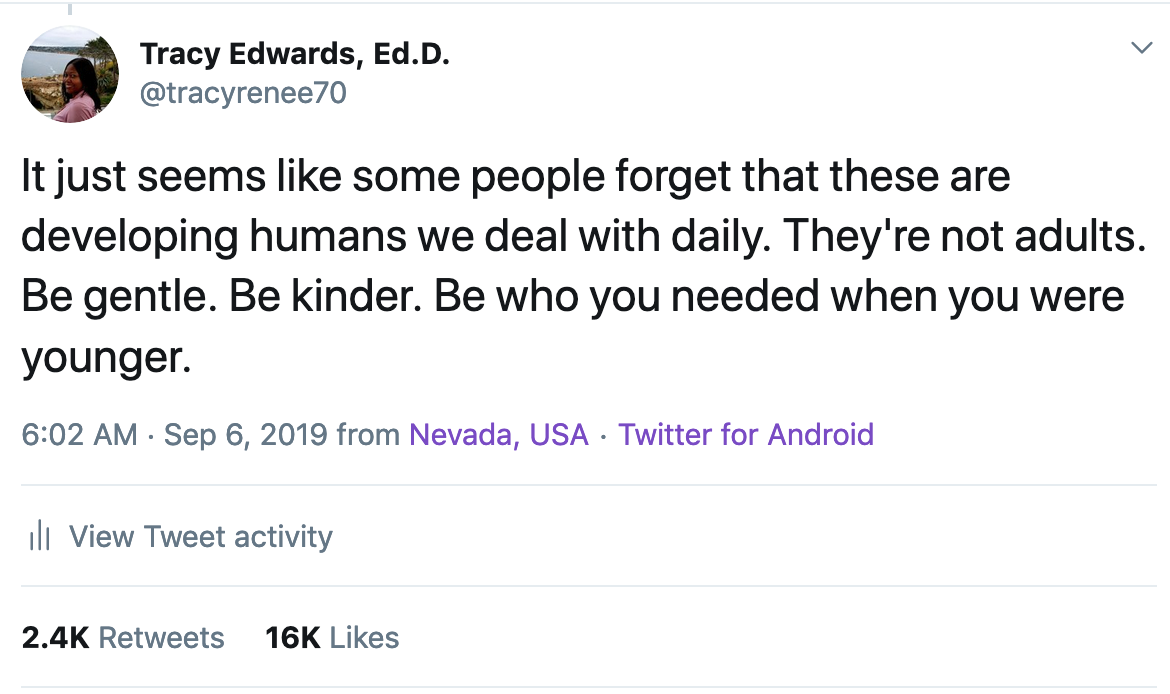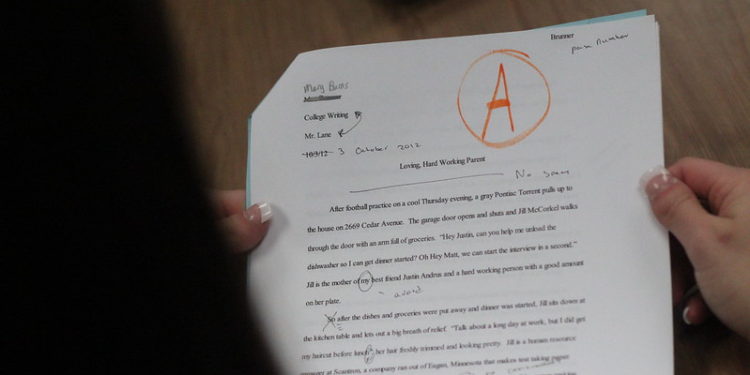A few months ago I posted a tweet about my grading policies.
I was absolutely not expecting it to go viral and I definitely did not foresee the number of people who responded with how I am failing to prepare kids for the “real world” by coddling them and setting them up for failure somehow. While most people responded positively I received my share of responses and direct messages that were filled with shock, disbelief and downright outrage. I was actually called a horrible teacher by a few overly angry folks in the Twitterverse. This obsession with treating kids as adults, some who are actually teachers took me aback. I wanted to examine this idea around preparing children for the real world and why it’s fallacy. First off, kids already experience the real world, in ways that many adults cannot possibley fathom. Over the years, I’ve had students who’ve experienced homelessness, death and unimaginable violence. I’ve had kids who were responsible for getting themselves and their siblings off to school each morning and were responsible for making dinner and helping with homework at night. These kids already live very much in the real world. After doing some thinking and digging, here are other reasons why the whole idea of preparing for the real world…is not real.
Test retakes are actually a thing in the real world.
I decided to look into how many times you are allowed to retake several exams that adults in the real world take. Here’s quick breakdown:
- You can take the ACT up to 12 times
- You can take the SAT as many times as you want
- You can take the GRE 5 times within a year
- You can even take the LSAT and MCAT 3 times a year
You see where I’m going with this. At almost every step as we get closer to adulthood and take required exams, retakes are allowed. So why shouldn’t we let students do the same? These are developing humans we’re dealing with. They’re not adults and they should be allowed to fail and try again many, many times.
The workplace is filled with second chances.
Letting students turn in late work pushed quite a few buttons. “Whatever will my students do when they go to work? They’ll get fired if they turn things in late!” Again let’s examine this argument. I have deadlines at work as well all do. I sometimes miss them. This usually plays out in a few ways. If I know something will be late, I usually have a conversation with my admin (a quick email even), letting them know what’s going on and when they can expect completion. Sometimes, I actually get overwhelmed and actually miss deadlines. I’ve never been fired for this. At most, there’s a gentle reminder from someone, followed by my actual completion of the deadline. Yes, depending on your field, missing deadlines may result in strict consequences, but there are also many environments where this is simply not true.
Retakes are sound pedagogical practice.
It’s one thing to post inspirational tweets and cute posters around your classroom about the importance of having a Growth Mindset. It’s quite another to openly embrace it as part of ongoing practice. Dweck’s research-based model includes teaching children how to embrace failure and accept feedback as a way of approaching challenging learning experiences. When students believe they can get smarter, they understand that effort makes them stronger. Therefore they put in extra time and effort, and that leads to higher achievement. Mastery learning, another research-based model stresses allowing students to move at their own pace to master content. Bloom’s Learning for Mastery (1968) and Keller’s Personalized System of Instruction (1968) both emphasized that while learning is linked to factors like student aptitude and quality of instruction, students can achieve mastery if they are allowed to learn the material at their own pace.
I’ve allowed retakes and late submissions for at least half of my teaching career. I will continue to do so. I want my students to master content, of course, but I also want them to understand the value of mistakes, constructive criticism, and feedback in the process. I want them to fail, try again and learn from their mistakes as most of us do well into adulthood. That’s close enough to the real world for me.



